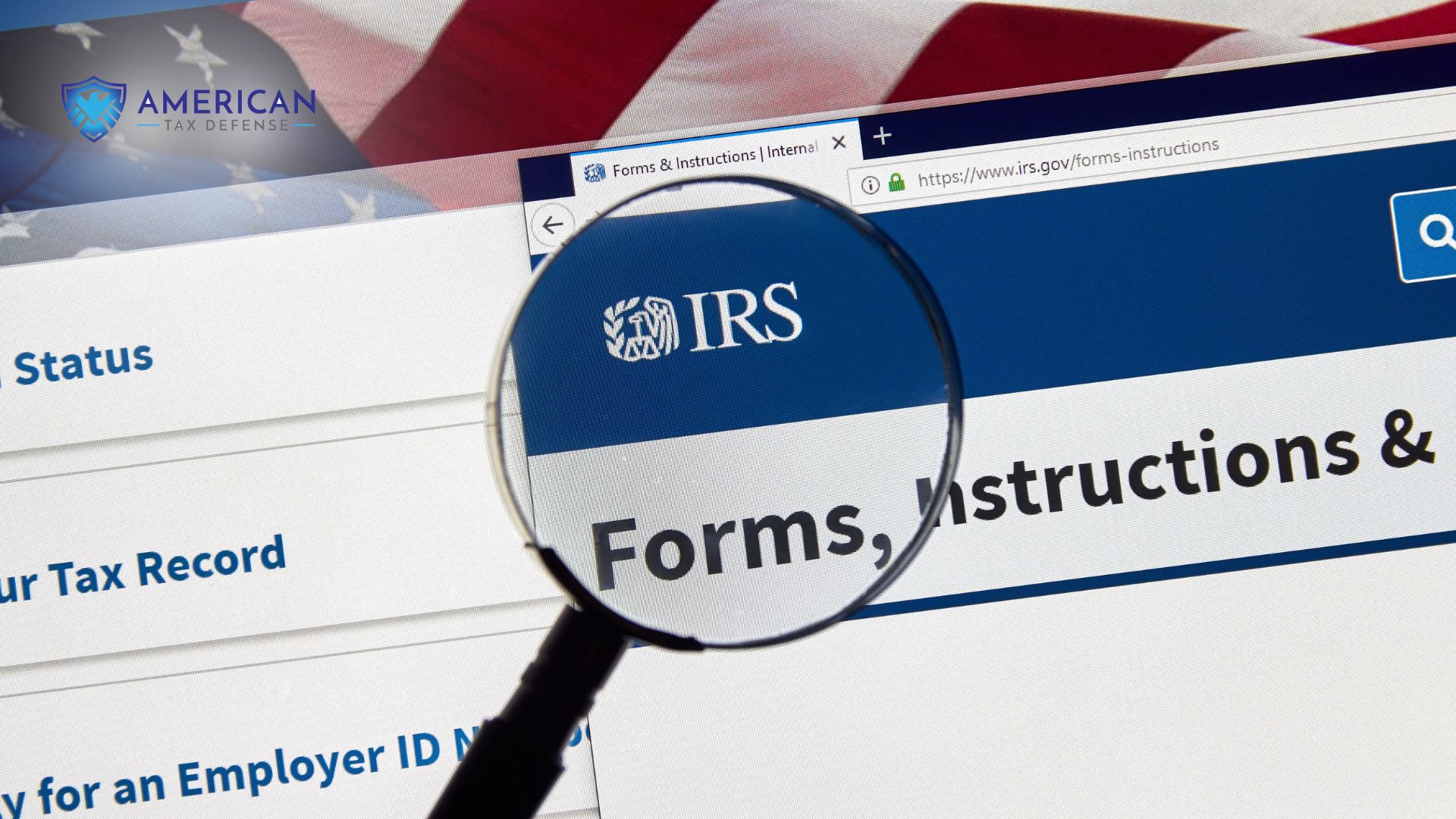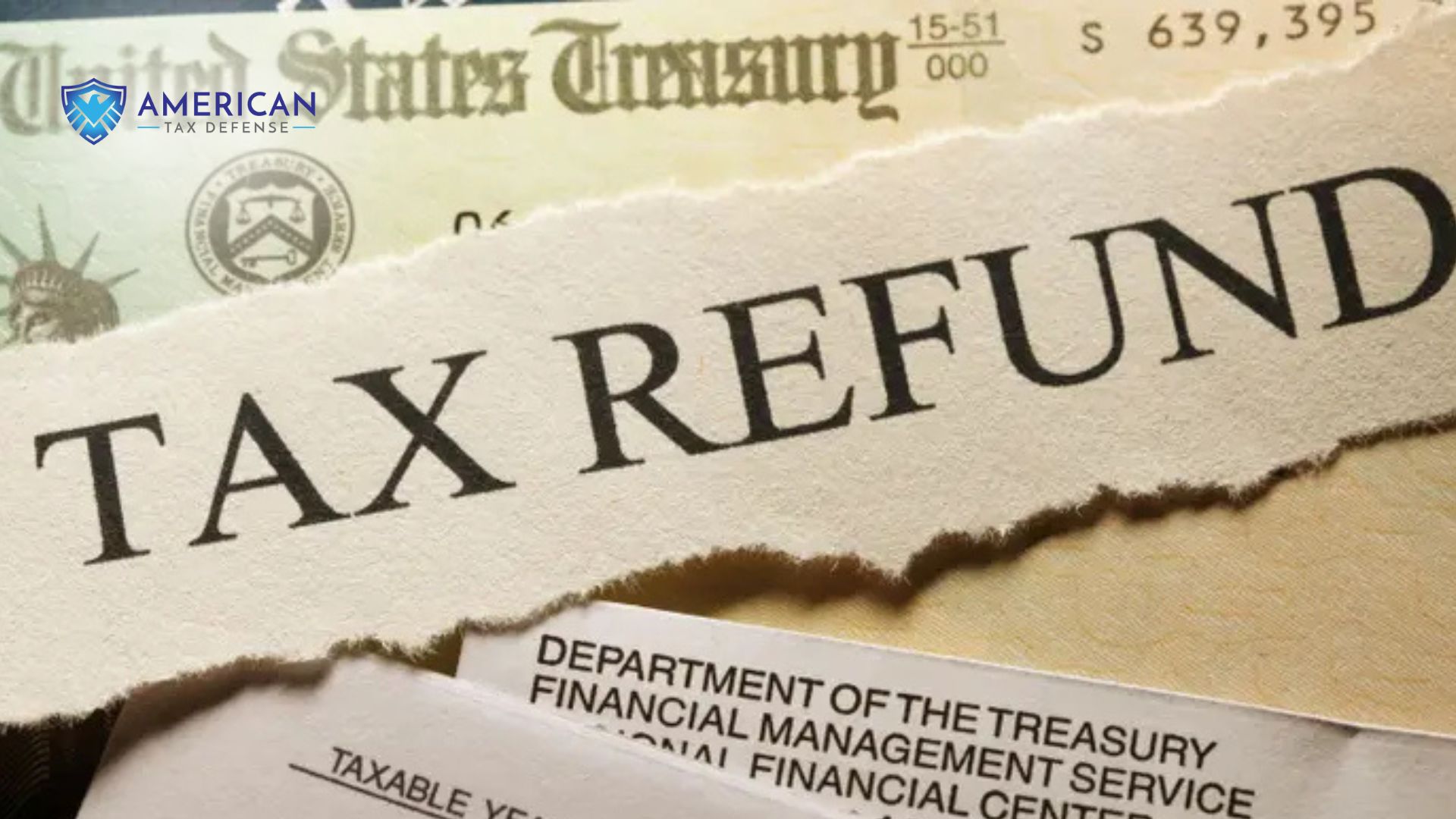If you’re facing IRS tax problems, you’re not alone. Millions of taxpayers struggle with issues such as unpaid taxes, audits, and penalties every year. Whether you’ve received a notice from the IRS or simply haven’t been able to pay your taxes, it’s essential to take immediate action. Ignoring IRS tax problems can lead to severe consequences, including wage garnishments, tax liens, and even asset seizure.
At American Tax Defense, we specialize in helping individuals and businesses navigate IRS challenges. In this guide, we’ll walk you through effective steps to resolve your tax issues and take control of your financial future.
What Are Common IRS Tax Problems?
Before we dive into solutions, it’s essential to understand the types of IRS tax problems that could affect you:
- Unpaid Taxes: If you owe the IRS money, they may begin to charge interest and penalties on the amount owed. This can quickly add up and make it difficult to pay off the debt.
- Tax Liens: A tax lien is a legal claim placed by the IRS on your property when you fail to pay your taxes.
- Tax Audits: Audits are IRS investigations into your financial records to ensure you’ve reported everything accurately on your tax returns.
- Wage Garnishment: If you fail to pay your taxes, the IRS may garnish your wages to collect the debt.
- Inaccurate Returns: Sometimes, errors or omissions on your tax return can lead to IRS scrutiny.
Steps to Resolve IRS Tax Problems
If you’re wondering, “How do I resolve IRS tax problems?”, the first step is to address the situation head-on. Ignoring the issue will only make things worse. Here’s how to proceed:
1. Get Organized and Review Your Tax Documents
The first thing you need to do is get organized. Review any correspondence you’ve received from the IRS, including notices, letters, or audit requests. Some key documents to gather include:
- Previous tax returns
- IRS notices or bills
- Pay stubs and income records
- Bank statements
- Proof of deductions and credits
This will give you a clear understanding of your situation. Additionally, having all of your paperwork organized will make it easier for tax professionals (like American Tax Defense) to help you resolve the issue.
2. Understand Your Tax Problem
Different tax problems require different solutions. Here’s a quick breakdown of common issues:
- If you owe back taxes, the IRS offers several options to resolve the debt, including installment agreements, Offers in Compromise (OIC), and Currently Not Collectible status.
- If you’re under audit, it’s critical to respond promptly to the IRS’s requests for information. Working with an experienced tax professional can help ensure you’re prepared for an audit and can minimize any potential penalties.
- If you’re facing tax liens or levies, you can request a lien discharge, withdrawal, or subordination. Alternatively, you can work with the IRS to enter into an agreement to pay off your debt.
3. Consider Working with a Tax Professional
IRS issues can be complicated and stressful, especially if you’re dealing with large sums of money or ongoing IRS actions. Working with a tax professional or tax resolution expert can help simplify the process and improve your chances of a favorable outcome.
At American Tax Defense, our team of tax experts can help you navigate the complexities of resolving IRS tax problems. We have experience negotiating with the IRS, representing clients in audits, and setting up payment plans or compromises.
4. Explore Your IRS Payment Options
The IRS offers several options to resolve tax debt, including:
- Installment Agreement: A long-term payment plan that allows you to pay your debt in smaller, more manageable payments. The IRS will determine if you’re eligible based on your financial situation.
- Offer in Compromise (OIC): An Offer in Compromise allows taxpayers to settle their tax debts for less than the full amount owed, provided they can prove financial hardship.
- Currently Not Collectible Status: If you can prove that you are unable to pay your taxes, the IRS may temporarily halt collection efforts. This doesn’t eliminate the debt, but it provides you with a reprieve.
- Penalty Abatement: If you can demonstrate that your tax problems were due to circumstances beyond your control, you may be able to have some or all of your penalties reduced or removed.
Each of these options has specific eligibility requirements, and the IRS may require documentation of your financial situation. Working with a professional, like American Tax Defense, can ensure you choose the best strategy for your case.
5. File Your Tax Returns (Even If You Can’t Pay)
One of the most important steps in resolving IRS tax issues is ensuring that all of your tax returns are filed. If you haven’t filed taxes in previous years, it’s important to catch up. The IRS may assess penalties and interest on your unpaid taxes, but you can often reduce penalties by filing missing returns as soon as possible.
Even if you can’t pay the full amount owed, filing your taxes on time will minimize the penalties you face. It also opens up options like payment plans and negotiating for an Offer in Compromise.
6. Respond to IRS Notices Promptly
The IRS is often willing to work with taxpayers who communicate and respond in a timely manner. Ignoring IRS notices will only escalate the situation. When you receive a notice or letter from the IRS, don’t ignore it.
- Address the issue as soon as possible: A timely response can often lead to more favorable terms and reduce the severity of any penalties or actions.
- Contact a tax professional: If you’re unsure about how to respond to an IRS notice, consulting with a tax expert can help you navigate the process and avoid mistakes.
7. Stay Informed About Your Rights
As a taxpayer, you have certain rights when dealing with the IRS. These include:
- The right to professional representation (such as an attorney or CPA)
- The right to appeal IRS decisions
- The right to request a hearing
- The right to confidentiality regarding your personal information
Understanding your rights can help protect you during the resolution process and ensure you’re not taken advantage of by the IRS.
8. Consider Tax Relief Programs
There are various government-sponsored tax relief programs that can help you resolve your IRS issues. These programs may include:
- Innocent Spouse Relief: For taxpayers who may have been unaware of tax issues due to their spouse’s actions, this relief can eliminate or reduce penalties.
- Taxpayer Advocate Service: This independent organization within the IRS helps taxpayers who are facing financial hardship or dealing with complicated tax issues.
Before applying for any relief programs, it’s essential to consult a tax professional to ensure eligibility and maximize your chances of success.
9. Don’t Wait – Take Action Today
The longer you wait to resolve IRS tax problems, the more likely it is that your debt will grow due to accumulating interest and penalties. If you’re facing tax issues, don’t delay – take action now.
At American Tax Defense, our team of experts can help you take the necessary steps to resolve your IRS tax problems. Whether you’re dealing with unpaid taxes, tax liens, or an IRS audit, we have the experience and knowledge to guide you through the process.
Why Choose American Tax Defense?
At American Tax Defense, we pride ourselves on providing compassionate, client-focused service to help you navigate complex IRS issues. We offer:
- Expert guidance on resolving IRS tax issues
- Customized tax resolution strategies based on your unique situation
- Assistance with audits, tax liens, and wage garnishments
- Experience negotiating with the IRS for the best possible outcome
If you’re struggling with tax problems, don’t face the IRS alone. Contact American Tax Defense today for a free consultation.
Conclusion
Resolving IRS tax problems doesn’t have to be overwhelming. By understanding your options and taking the necessary steps, you can effectively resolve your tax issues and regain control of your finances. With the help of American Tax Defense, you can navigate the process confidently and find the best solution for your situation.
Don’t wait – contact us now and start resolving your IRS tax problems today!



